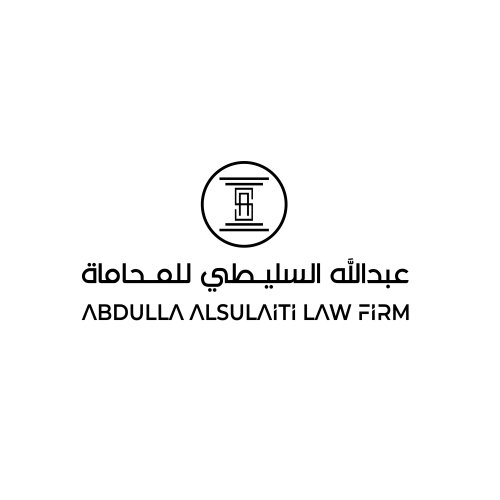Best Antitrust Litigation Lawyers in Doha
Share your needs with us, get contacted by law firms.
Free. Takes 2 min.
List of the best lawyers in Doha, Qatar
About Antitrust Litigation Law in Doha, Qatar
Antitrust litigation law in Doha, Qatar is designed to promote fair competition and prevent anti-competitive practices among businesses. The primary focus of these laws is to protect consumer interests, encourage innovation, and maintain a level playing field in the market. Antitrust litigation generally involves legal proceedings related to allegations of monopolistic practices, cartel agreements, abuse of dominance, and other unfair trade practices. The Qatari government, through its legal framework and regulatory agencies, ensures that companies operate according to principles of free and healthy competition.
Why You May Need a Lawyer
Individuals and businesses may require an antitrust lawyer in Doha for various reasons. Common situations include:
- Being accused of engaging in anti-competitive behavior, such as price fixing or exclusive dealing arrangements
- Facing investigations or enforcement actions from Qatari competition authorities
- Entering into mergers, acquisitions, or joint ventures that may affect competition in the market
- Filing complaints against competitors suspected of violating competition laws
- Seeking advice to ensure business agreements comply with antitrust regulations
- Negotiating settlements or representation during court proceedings related to antitrust issues
- Understanding the legal implications of restrictive trade practices or market dominance
A legal expert can guide you through the complex legal procedures, help protect your interests, and advise on strategies to comply with the law.
Local Laws Overview
In Qatar, competition and antitrust matters are governed mainly by the Competition Law (Law No. 19 of 2006 on the Protection of Competition and Prevention of Monopolistic Practices) and its subsequent amendments. The law prohibits practices that restrict, prevent, or distort competition, including:
- Monopolization or abuse of market dominance
- Cartel agreements, such as price fixing or market allocation
- Unfair commercial practices and conspiracies that harm competition
The relevant authority overseeing antitrust matters is the Ministry of Commerce and Industry (MOCI). The Competition Protection and Anti-Monopoly Committee operates under the MOCI to investigate complaints, enforce regulations, and recommend penalties for violations. Penalties can include substantial fines, cancellation of agreements, and even suspension of business activities.
Certain industries, such as telecommunications and energy, may be subject to additional sector-specific competition rules. Companies involved in mergers or acquisitions that exceed certain thresholds must notify the relevant authorities for approval to ensure these transactions do not adversely affect market competition in Qatar.
Frequently Asked Questions
What is considered an antitrust violation in Qatar?
Antitrust violations include any actions that restrict free competition, such as colluding with competitors to set prices, dividing markets, or abusing a dominant position to exclude competitors or control prices.
Who enforces antitrust laws in Doha, Qatar?
The Ministry of Commerce and Industry, particularly its Competition Protection and Anti-Monopoly Committee, is responsible for enforcing antitrust laws in Qatar.
What happens if a business is found guilty of anti-competitive behavior?
If a business is found guilty, it may face financial penalties, cancellation of restrictive agreements, potential suspension of business licenses, and other corrective measures as determined by the authorities.
Are there any exemptions from the antitrust law in Qatar?
Certain agreements or practices may be exempt if they are deemed to benefit consumers or improve efficiency without harming competition. Exemptions are subject to approval by the relevant authorities.
How can I file a complaint regarding anti-competitive practices?
Complaints can be submitted to the Ministry of Commerce and Industry. Detailed documentation and evidence of the anti-competitive behavior will support your case.
Do mergers and acquisitions require regulatory approval?
Yes, mergers and acquisitions that exceed certain thresholds must be notified to the authorities for review and approval to ensure they do not harm market competition.
Can individuals or only companies be held liable under the antitrust laws?
Both companies and individuals can be held liable if they engage in anti-competitive conduct in violation of Qatari competition laws.
What should I do if I am subject to an antitrust investigation?
You should contact an experienced antitrust lawyer immediately to guide you through the investigation, protect your rights, and help formulate your response or defense strategy.
How does the law protect whistleblowers or informants?
The authorities encourage the reporting of anti-competitive practices and may offer protection to whistleblowers or informants, although the extent of protection depends on the circumstances and the information provided.
What is the statute of limitations for filing an antitrust complaint in Qatar?
The statute of limitations may vary based on the specifics of the case. Consulting a lawyer is advised for matters related to time limits and filing procedures.
Additional Resources
For further assistance and detailed information about antitrust litigation in Doha, Qatar, consider the following resources:
- Ministry of Commerce and Industry (MOCI): Main regulator for competition matters
- Competition Protection and Anti-Monopoly Committee: Regulatory body handling investigations and complaints
- Qatar Chamber of Commerce: Provides business guidance and legal resources
- Private legal firms specializing in commercial and competition law
- Academic publications from local universities on Qatari competition law
Next Steps
If you believe you may be involved in an antitrust matter or require legal assistance, consider taking the following steps:
- Document all relevant details and gather evidence related to the issue
- Seek initial legal consultation with a qualified lawyer specializing in antitrust litigation in Qatar
- If you are subject to an investigation, refrain from making statements or decisions without legal counsel
- Prepare to cooperate with the authorities and comply with all legal requirements
- Stay informed about your rights and obligations under Qatari competition law
Engaging a knowledgeable legal expert early in the process can help you navigate complex antitrust issues and ensure the best possible outcome for your case.
Lawzana helps you find the best lawyers and law firms in Doha through a curated and pre-screened list of qualified legal professionals. Our platform offers rankings and detailed profiles of attorneys and law firms, allowing you to compare based on practice areas, including Antitrust Litigation, experience, and client feedback.
Each profile includes a description of the firm's areas of practice, client reviews, team members and partners, year of establishment, spoken languages, office locations, contact information, social media presence, and any published articles or resources. Most firms on our platform speak English and are experienced in both local and international legal matters.
Get a quote from top-rated law firms in Doha, Qatar — quickly, securely, and without unnecessary hassle.
Disclaimer:
The information provided on this page is for general informational purposes only and does not constitute legal advice. While we strive to ensure the accuracy and relevance of the content, legal information may change over time, and interpretations of the law can vary. You should always consult with a qualified legal professional for advice specific to your situation.
We disclaim all liability for actions taken or not taken based on the content of this page. If you believe any information is incorrect or outdated, please contact us, and we will review and update it where appropriate.
















